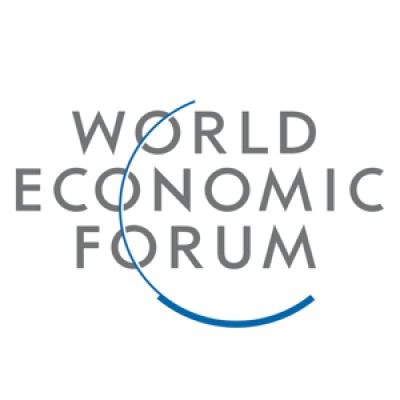The Future of Food: Navigating the Challenges of Supply Chains and Sustainability
August 21, 2024, 5:33 pm

Location: Switzerland, Geneva, Cologny
Employees: 501-1000
Founded date: 2004
USA News Group
Employees: 11-50
The world of agriculture is at a crossroads. Rising food costs and strained supply chains threaten to destabilize the delicate balance of food security. As we grapple with these challenges, innovative agritech companies are stepping up to the plate, offering solutions that promise to reshape the future of food production.
The food supply chain is like a fragile web. Each strand must hold firm to ensure that food reaches our tables. Yet, recent commentary from experts highlights that this web is fraying. Built for a world that no longer exists, it struggles under the weight of modern demands. The UN World Food Program warns of hunger and famine, echoing a call for urgent action.
In this landscape, agritech companies are the unsung heroes. They are not just responding to crises; they are redefining how we think about food production. Companies like Bee Vectoring Technologies International Inc. (BVT) are pioneering new methods to protect crops. BVT uses bees to deliver biological pesticides directly to plants. This approach not only enhances crop protection but also reduces reliance on harmful chemicals. The market for biologicals is booming, projected to reach $45.3 billion by 2032.
BVT's recent approval in Mexico for its proprietary fungicide, CR-7, marks a significant milestone. This approval opens doors to a market eager for sustainable solutions. Mexico's agricultural sector is ripe for innovation, with growers increasingly seeking alternatives to traditional pesticides. BVT's strategy aligns perfectly with this shift, offering a natural solution that enhances food safety and quality.
Meanwhile, Cal-Maine Foods, the largest producer of fresh shell eggs in the U.S., is expanding its reach. The acquisition of ISE America’s egg production assets strengthens its position in the Northeast and Mid-Atlantic markets. This move is not just about growth; it’s about meeting the rising demand for fresh, local food. As consumers become more conscious of where their food comes from, companies that adapt will thrive.
Calavo Growers, known for its avocados, is also pivoting. After selling its Fresh Cut business, it’s focusing on its core operations. This strategic shift comes as the company reports a significant increase in sales. The avocado market is booming, and Calavo is positioning itself to capitalize on this trend.
Sustainability is the heartbeat of modern agriculture. Darling Ingredients is transforming waste into valuable resources. By converting materials from the food industry into renewable energy and animal feed, it embodies the principles of a circular economy. The company’s commitment to reducing emissions aligns with global sustainability goals, showcasing how innovation can drive environmental responsibility.
FMC Corporation is another player making waves. With a focus on herbicide resistance, FMC is equipping farmers with new tools to combat challenges in crop production. Its recent earnings report reflects a growing demand for its products, underscoring the importance of innovation in agriculture.
But it’s not just about protecting crops; it’s also about nurturing the soil. BioVaxys Technology Corp. is at the forefront of biotech innovations. Its partnership with SpayVac for Wildlife aims to address fertility control in wildlife and agricultural animals. This initiative highlights the intersection of animal health and sustainable agriculture. By developing long-lasting contraceptive vaccines, BioVaxys is tackling overpopulation issues in a humane way.
Corteva Agriscience is promoting Direct Seeded Rice (DSR) techniques in India. This method reduces water usage and enhances sustainability. As one of the largest rice producers globally, India’s shift to DSR could have far-reaching implications for food security. Corteva’s commitment to developing climate-resilient seed products reflects a growing recognition of the need for sustainable agricultural practices.
Blockchain technology is also making its mark. Bunge Global SA’s collaboration with CP Foods aims to create a traceability platform for deforestation-free soybean meal. This initiative enhances transparency in the supply chain, building consumer trust. As consumers demand more accountability, such innovations will become essential.
The push for regenerative agriculture is gaining momentum. BRF S.A. is willing to pay a premium for soybeans produced through regenerative practices. This commitment not only supports sustainable farming but also encourages farmers to adopt methods that enhance soil health. The project, backed by a consortium of companies, aims to produce over 200,000 metric tons of verified regenerative soybeans.
As we navigate these turbulent waters, the role of agritech companies becomes increasingly vital. They are the innovators, the risk-takers, and the visionaries. Their solutions are not just about profit; they are about ensuring a sustainable future for food production.
The challenges are daunting. Rising food costs, climate change, and supply chain disruptions are all part of the equation. But within these challenges lie opportunities. Opportunities for innovation, collaboration, and transformation.
The future of food is not just about feeding the world; it’s about doing so sustainably. It’s about creating a system that nourishes both people and the planet. As we look ahead, the path is clear. Embrace innovation. Foster sustainability. And together, we can weave a stronger, more resilient food supply chain.
In this evolving landscape, the message is simple: adapt or be left behind. The stakes are high, but the potential rewards are even greater. The future of food is bright, and it’s in the hands of those willing to innovate.
The food supply chain is like a fragile web. Each strand must hold firm to ensure that food reaches our tables. Yet, recent commentary from experts highlights that this web is fraying. Built for a world that no longer exists, it struggles under the weight of modern demands. The UN World Food Program warns of hunger and famine, echoing a call for urgent action.
In this landscape, agritech companies are the unsung heroes. They are not just responding to crises; they are redefining how we think about food production. Companies like Bee Vectoring Technologies International Inc. (BVT) are pioneering new methods to protect crops. BVT uses bees to deliver biological pesticides directly to plants. This approach not only enhances crop protection but also reduces reliance on harmful chemicals. The market for biologicals is booming, projected to reach $45.3 billion by 2032.
BVT's recent approval in Mexico for its proprietary fungicide, CR-7, marks a significant milestone. This approval opens doors to a market eager for sustainable solutions. Mexico's agricultural sector is ripe for innovation, with growers increasingly seeking alternatives to traditional pesticides. BVT's strategy aligns perfectly with this shift, offering a natural solution that enhances food safety and quality.
Meanwhile, Cal-Maine Foods, the largest producer of fresh shell eggs in the U.S., is expanding its reach. The acquisition of ISE America’s egg production assets strengthens its position in the Northeast and Mid-Atlantic markets. This move is not just about growth; it’s about meeting the rising demand for fresh, local food. As consumers become more conscious of where their food comes from, companies that adapt will thrive.
Calavo Growers, known for its avocados, is also pivoting. After selling its Fresh Cut business, it’s focusing on its core operations. This strategic shift comes as the company reports a significant increase in sales. The avocado market is booming, and Calavo is positioning itself to capitalize on this trend.
Sustainability is the heartbeat of modern agriculture. Darling Ingredients is transforming waste into valuable resources. By converting materials from the food industry into renewable energy and animal feed, it embodies the principles of a circular economy. The company’s commitment to reducing emissions aligns with global sustainability goals, showcasing how innovation can drive environmental responsibility.
FMC Corporation is another player making waves. With a focus on herbicide resistance, FMC is equipping farmers with new tools to combat challenges in crop production. Its recent earnings report reflects a growing demand for its products, underscoring the importance of innovation in agriculture.
But it’s not just about protecting crops; it’s also about nurturing the soil. BioVaxys Technology Corp. is at the forefront of biotech innovations. Its partnership with SpayVac for Wildlife aims to address fertility control in wildlife and agricultural animals. This initiative highlights the intersection of animal health and sustainable agriculture. By developing long-lasting contraceptive vaccines, BioVaxys is tackling overpopulation issues in a humane way.
Corteva Agriscience is promoting Direct Seeded Rice (DSR) techniques in India. This method reduces water usage and enhances sustainability. As one of the largest rice producers globally, India’s shift to DSR could have far-reaching implications for food security. Corteva’s commitment to developing climate-resilient seed products reflects a growing recognition of the need for sustainable agricultural practices.
Blockchain technology is also making its mark. Bunge Global SA’s collaboration with CP Foods aims to create a traceability platform for deforestation-free soybean meal. This initiative enhances transparency in the supply chain, building consumer trust. As consumers demand more accountability, such innovations will become essential.
The push for regenerative agriculture is gaining momentum. BRF S.A. is willing to pay a premium for soybeans produced through regenerative practices. This commitment not only supports sustainable farming but also encourages farmers to adopt methods that enhance soil health. The project, backed by a consortium of companies, aims to produce over 200,000 metric tons of verified regenerative soybeans.
As we navigate these turbulent waters, the role of agritech companies becomes increasingly vital. They are the innovators, the risk-takers, and the visionaries. Their solutions are not just about profit; they are about ensuring a sustainable future for food production.
The challenges are daunting. Rising food costs, climate change, and supply chain disruptions are all part of the equation. But within these challenges lie opportunities. Opportunities for innovation, collaboration, and transformation.
The future of food is not just about feeding the world; it’s about doing so sustainably. It’s about creating a system that nourishes both people and the planet. As we look ahead, the path is clear. Embrace innovation. Foster sustainability. And together, we can weave a stronger, more resilient food supply chain.
In this evolving landscape, the message is simple: adapt or be left behind. The stakes are high, but the potential rewards are even greater. The future of food is bright, and it’s in the hands of those willing to innovate.

